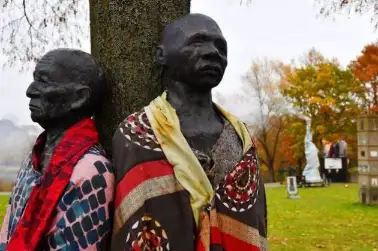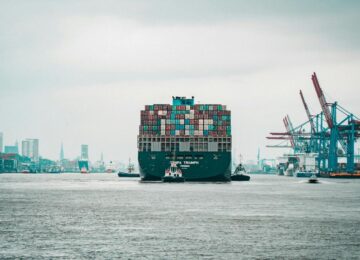Closing two weeks of talks in Bonn, negotiators agreed to take stock in 2018 of national efforts to cut fossil fuel emissions.
Negotiations to bolster the climate-saving Paris Agreement, crafted over two decades, closed in Bonn on November 18, deflated but not derailed by Donald Trump's rejection of the treaty and defence of fossil fuels.
The U.S. President's decision to yank the United States from the hard-fought global pact cast a long shadow over the talks, which ran deep into overtime. Negotiations were marked by revived divisions between developing countries and rich ones.
With a wary eye on America, which sent negotiators to a forum it intends to quit, envoys from nearly 200 countries got on with the business of designing a "rule book" for enacting the agreement, which enters into full force in three years' time.
"The Trump administration failed to stop the global climate talks from moving forward," said Greenpeace observer Jens Mattias Clausen.
Closing two weeks of talks, negotiators agreed in the early hours of November 18 to take stock in 2018 of national efforts to cut fossil fuel emissions.
The Paris treaty calls for limiting average global warming to "well under" 2°C (3.6° F) compared to pre-industrial levels, or 1.5°C if possible.
Anything over 2°C, experts say, dooms the world to calamitous climate change, with more extreme superstorms, droughts, floods, and land-gobbling sea level rise.
A report this week warned that emissions of carbon dioxide, the main planet-warming gas, were set to rise by two percent in 2017 after three years of hardly any growth.
"Starting now, emissions need to decrease to zero over the next 40 years to prevent us breaching the 1.5°C threshold," Piers Forster, a professor of climate change at the University of Leeds, said.
Nations have submitted voluntary emissions-cutting commitments under the Paris pact championed by Barack Obama.
But scientists say current pledges place the world on course for warming of 3°C or more, and counsel an urgent upgrade of the global commitment to phasing out greenhouse gases produced by burning coal, oil and natural gas.
Islands in peril
"While the Paris Agreement represents a remarkable diplomatic achievement, it will be judged by history as little more than words on paper if the world fails to take the level of action needed to prevent the loss of entire island nations," Maldives Environment Minister Thoriq Ibrahim told delegates Friday.
The stocktake agreed on November 18 must quantify the shortfall to determine what more needs to be done.
In Bonn, negotiators also worked on a nuts-and-bolts rulebook, to be finalised at the next U.N. climate conference in Katowice, Poland in December 2018, for putting the Paris Agreement into action.
Some progress was made, but observers and delegates complained that things were moving too slowly.
Many lamented the void in "political leadership" left by the departure of Mr. Obama, and by German Chancellor Angela Merkel's failure to set a timetable for phasing out coal-fired power plants, which produce 40% of Germany's electricity.




























